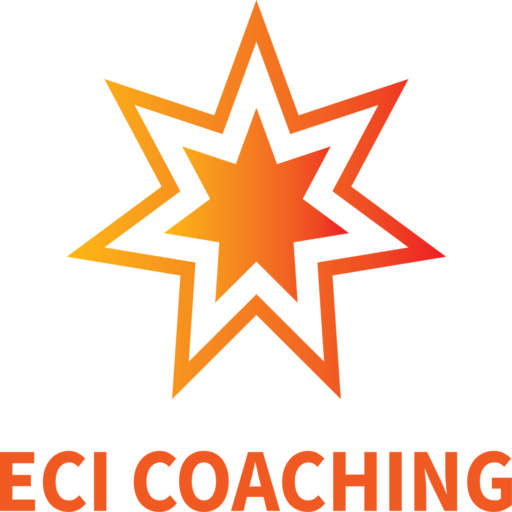5 Tips to Choosing a Coach

Because everybody has very different needs, requirements and goals, coaches in general come in all sorts of shapes and sizes, experience, specializations and backgrounds.
So how do you go about choosing a coach who can suit you and your needs best?
Let’s begin with a few qualities.
- First and most importantly: Is this person really a coach?I know it may sound trite, but I have seen so many people who haven’t had any proper coach training that they have no idea about the disciplines involved in coaching. Perhaps they have some good experiences as a background that they are offering to share their advice with other people, and they believe that’s called coaching. However, coaching has a certain set of disciplines and skill sets that enable a certain amount of enquiry, engagement, listening, questioning, beingness, flowing, intellectual frameworks and emotional frameworks, that allow a coach to elicit the best from his/her client.
- The second thing to ask essentially is, “Is this person a certified coach, and certified from where?” A follow-up question then may be, “Does the certification follow any standards?” Are these standards, if you were to assess them, acceptable to you, in terms of the coach’s experience and/or the stringent criterias (if any) required for a person to become a coach of that calibre? When I used to sit on the Ethics and Standards Committee in the International Coach Federation (ICF), there was one issue that we were constantly tackling: How do we create standards such that people end up having wonderful experiences out of coaching, as opposed to people who engage those who are not trained as coaches and as a result have bad experiences, and therefore bring down the industry? We were engaged at the industry-level problem. We have been successful so far in being able to perpetuate the idea that there are standards that exist for coaching. So I would say the first thing is to look for those kinds of standards, and whether they are acceptable to you.
- The third thing to look out for is your own inkling and instinct with this coach. When you sit down and talk to the coach, enquire about their experience and professional coaching skill sets. Of course, we’re looking at whether this coach has got what it takes to give you the necessary background. But that is a relatively limited approach. What I mean by that is, if you’re looking for somebody with a given set of experiences, say for example somebody who’s an entrepreneur looking for a coach who is an entrepreneur, you’re no longer looking for a coach. You’re looking for a mentor, which is different from a coach. Mentors have the necessary skill sets to pass down to teach you the ins and outs, the rights and wrongs, the dos and donts, and so on, in a particular area or industry so that you make a lot less mistakes, because you have somebody guiding you as a mentor to tell you these are the steps to take. When a person’s looking for a mentor, that’s not the same as looking for a coach.
Relevant experience is very pertinent for a person looking for mentor, but if you are looking for a coach, you’re looking for the qualifications which shows that this coach has a mastery of the processes for coaching, i.e. all the toolsets necessary to engage you and elicit the solutions or the creation from you.
- The fourth test is whether you feel you can engage and flow with the coach.In other words, can you dance and work with the coach? Can you cooperate with him/her? Is it such that you two can work to create beautiful music together? I say the flow is more important than the personality, because the personality is a function of whether you like or don’t like the person.Now, if you are choosing somebody who is likeable, but they are not powerful in the processes of creating the creative flow within you, and they don’t have the standards and proof of them in terms of their training, then you’re really just getting yourself a nice guy. But you’re really looking for a great coach, not a nice guy.If it happens that the coach has got a great personality that you are in love with, they’ve got great flowing skills to work with you in co-creation, and they’ve got great standards in terms of their training and maybe the relevant in a certain industry that shows that they have the ability to create the kind of results that you want, you pretty much got it down.
- The last thing that I personally like to look out for is to enquire about the teacher of the coach.If coaching as a mentorship skill set is passed down from a successful coach mentor to another coach, perhaps their mentor will be able to create something for you. Sometimes, coaches are quite open to who their mentors are, and their mentors are open to supporting their coaches for what they do. I like to explore my options, I like to go backwards, I like to look for standards.
Hopefully some of these things will be useful for you when it comes to selecting a coach. If it helps, drop me a note. I would love to hear from your success stories.
 Kelvin Lim is Asia’s first Master Coach and the Founder and Principal Coach of Executive Coach International, the largest Coaching organisation in Singapore. A professional coach since 1997, Kelvin has worked with over 20,000 people in China, Singapore and Internationally. He is also one of the Executive Producers of the Coaching movie, the first-ever international film about Coaching. You can follow him on LinkedIn here.
Kelvin Lim is Asia’s first Master Coach and the Founder and Principal Coach of Executive Coach International, the largest Coaching organisation in Singapore. A professional coach since 1997, Kelvin has worked with over 20,000 people in China, Singapore and Internationally. He is also one of the Executive Producers of the Coaching movie, the first-ever international film about Coaching. You can follow him on LinkedIn here.
Find out more about Executive Coach International’s Coaching Program for an impact-intensive coaching experience to gain realizations and achieve breakthroughs for yourself in just 3 days. Register for our free coaching preview here.

